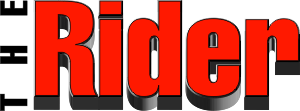
One thing we both don’t need a break from is the journey of learning and connection with our horses.
 Sharon: As digitisation, technology, and AI continue to evolve at an ever increasing pace, it seems we humans, although worried about what AI will do to our jobs, we are happy to enjoy some of these spoils – from Amazon delivering spontaneous purchases we never would have considered years ago to replacing our perfectly good phones for something newer with even more functionality (I am waiting for the phone that teleports you from one place to the next), our appetite for instant gratification is growing.
Sharon: As digitisation, technology, and AI continue to evolve at an ever increasing pace, it seems we humans, although worried about what AI will do to our jobs, we are happy to enjoy some of these spoils – from Amazon delivering spontaneous purchases we never would have considered years ago to replacing our perfectly good phones for something newer with even more functionality (I am waiting for the phone that teleports you from one place to the next), our appetite for instant gratification is growing.
My love for horses started when I was very young, it took a gap when we moved house to a place where concrete was king, but the passion came back when I immigrated to Canada. So I couldn’t help but wonder… I asked Jen…how has this shift in pace and desire for things when we want them, which is usually… now… affected the horse world?
 Jen: (with a wry laugh) “Oh yes…It seems to have seeped into the horse world as well. We see (some) horses are being pushed to perform with no regard to the horse’s welfare, (some) trainers and coaches are expected to provide results in an unrealistic timeframe, looking for that instant gratification in the show pen.
Jen: (with a wry laugh) “Oh yes…It seems to have seeped into the horse world as well. We see (some) horses are being pushed to perform with no regard to the horse’s welfare, (some) trainers and coaches are expected to provide results in an unrealistic timeframe, looking for that instant gratification in the show pen.
The end result of this formula equals – burnout in the horse.
Where is the longevity for our horses gone? It seems now, many young horses are pushed so much in their early years only to be physically and mentally done by their prime years.
 I’m not saying this is true for all in our industry. There are those who really care about the development and welfare of their horses and will not sacrifice the horse or their integrity for today’s instant gratification and demanding customer.”
I’m not saying this is true for all in our industry. There are those who really care about the development and welfare of their horses and will not sacrifice the horse or their integrity for today’s instant gratification and demanding customer.”
Sharon: “How do we ensure that we are providing the best lifelong journey for our equine partner?”
Jen: “It has to start with an acceptance and knowledge that each horse is unique, there should be no cookie cutter approach to training, one size does not fit all. Some horses are able to be faster tracked but some – are absolutely not. A flexible training program that works with your horse’s physical ability as well as their mental ability is crucial. Every horse is an individual and should be treated as such. A happy horse will be a more willing horse.
As you work with the horse you go at his pace. It’s of equal importance to have a great team of professionals to provide veterinary services, farrier services, bodywork professionals (chiropractor, message, etc.) Having good communication with my professionals and working together with them to ensure that my horses are healthy and happy.
 Making sure the equipment fits so having well-fitting saddles so the horse can move freely in their wither, shoulders and back. I do have a preference for a saddle maker and if anyone is interested I’d be happy to share who and why.
Making sure the equipment fits so having well-fitting saddles so the horse can move freely in their wither, shoulders and back. I do have a preference for a saddle maker and if anyone is interested I’d be happy to share who and why.
I make it my mission to be knowledgeable about the nutritional requirements for each horse so I can provide a good balanced feed to give the horse the energy he needs to grow and develop and do his job. I also am lucky to have a great hay man- having good quality hay is essential along with a vitamin and mineral supplement is key to a solid feed program.
By investing in these areas, and paying close attention to each horse, you can ensure your horse remains healthy, happy, and competitive throughout their career – going well in to their teen years.”
'From the Trainer's Eye articles written by Jen Jonas of Jonas Performance Horses and one of her students, Sharon Jones of Be A Better You Inc. Both Jen and Sharon are believers in continuous learning - if you're not learning you are not growing'


